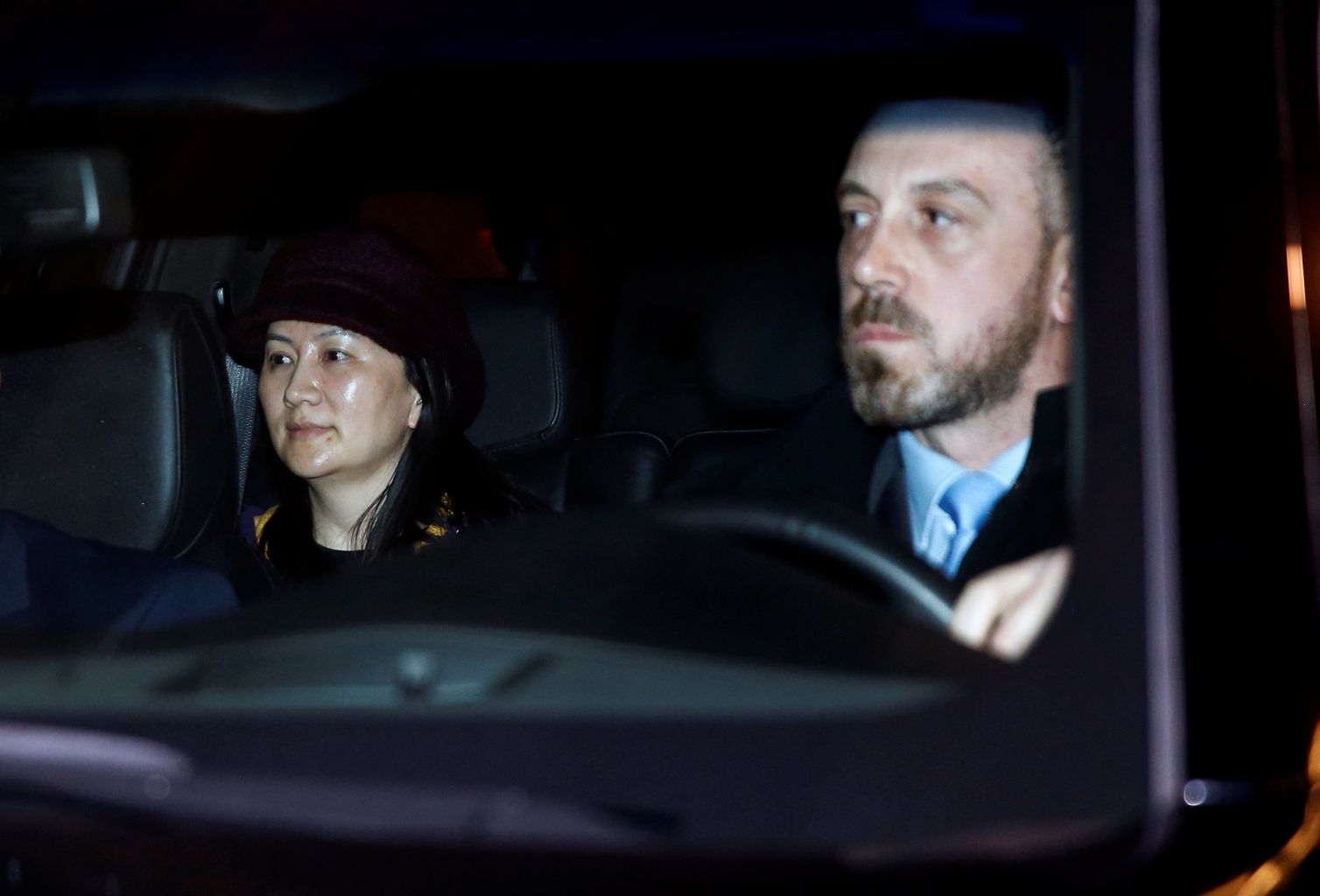Canada court sets May 8 date for extradition case of Huawei executive Meng Wanzhou
Sign up now: Get ST's newsletters delivered to your inbox

Meng Wanzhou arrives in the Vancouver court's parking garage, March 6, 2019.
PHOTO: REUTERS
VANCOUVER (WASHINGTON POST) - Chinese technology executive Meng Wanzhou appeared in a Vancouver, British Columbia, courtroom on Wednesday (March 6) for the first hearing in an extradition process that will put Canada squarely in the middle of a standoff between the United States and China.
Wednesday's proceedings were short and focused on scheduling.
The hearing that will determine whether Meng, the CFO for Huawei Technologies, will be extradited to the United States to face charges related to alleged violations of US sanctions on Iran will start May 8, the court ruled.
The adjournment sets in motion a legal process that will be closely watched in Ottawa, Beijing and Washington.
Canada and China have been locked in an escalating dispute over her fate since news broke of Meng's Dec 1 arrest at Vancouver's airport.
China denounced her detention and has called for her release. Canada has countered that it is bound by an extradition treaty with the United States, casting the case as a legal matter, not a political one.
Not long after Meng's arrest, China arrested two Canadians on vague security charges widely seen as retaliatory. A Canadian serving jail time in China for drug smuggling was later resentenced and given the death penalty in a surprise, one-day trial.
After Canadian authorities gave the go-ahead for the extradition process in the Meng case to start, China offered more details on the charges facing the two Canadians being held on security grounds. They are suspected of stealing state secrets, Chinese authorities said Monday.
All this comes at a time when the United States is engaged in tense trade negotiations with China. Trump has suggested that he could or would cut a deal for Meng's release in exchange for trade concessions - a plan that appears to run counter to US Justice Department aims.
In January, the US government unveiled a 13-count indictment against Huawei, two affiliates and Meng, alleging bank and wire fraud. It also charged the company with violating US sanctions on Iran.
Meng's attorneys, who have vowed to fight the charges in court, appear to be exploring a legal strategy focused on the nature of the charges, as well as Meng's treatment in Canada.
Ahead of Wednesday's hearing, her team issued a statement objecting to the extradition process. The defence team cited what it called the "political nature" of the charges and highlighted Trump's suggestion that Meng could be released as part of a broader US-China deal.
"The President of the United States has repeatedly stated that he would interfere in Ms Meng's case if he thought it would assist the US negotiations with China over a trade deal," the statement said.
The statement also hinted that her team would argue that the allegations against Meng constitute a crime in the United States, but not in Canada. It said this was "an affront to the foundational extradition principle of double constitutionality."
Meng also filed a civil suit against the Royal Canadian Mounted Police, the Canadian Border Services Agency and the federal government, saying her constitutional rights were violated when she was detained.
Canadian prosecutors have not commented on the case since December, when Meng attended a bail hearing.
At that time, the prosecutors argued that Meng committed fraud in 2013 by misstating Huawei's relationship with a Hong Kong-based company, Skycom, which reportedly was selling US goods to Iran in violation of US sanctions.
Meng's attorneys denied the charges, saying Huawei sold Skycom in 2009.


